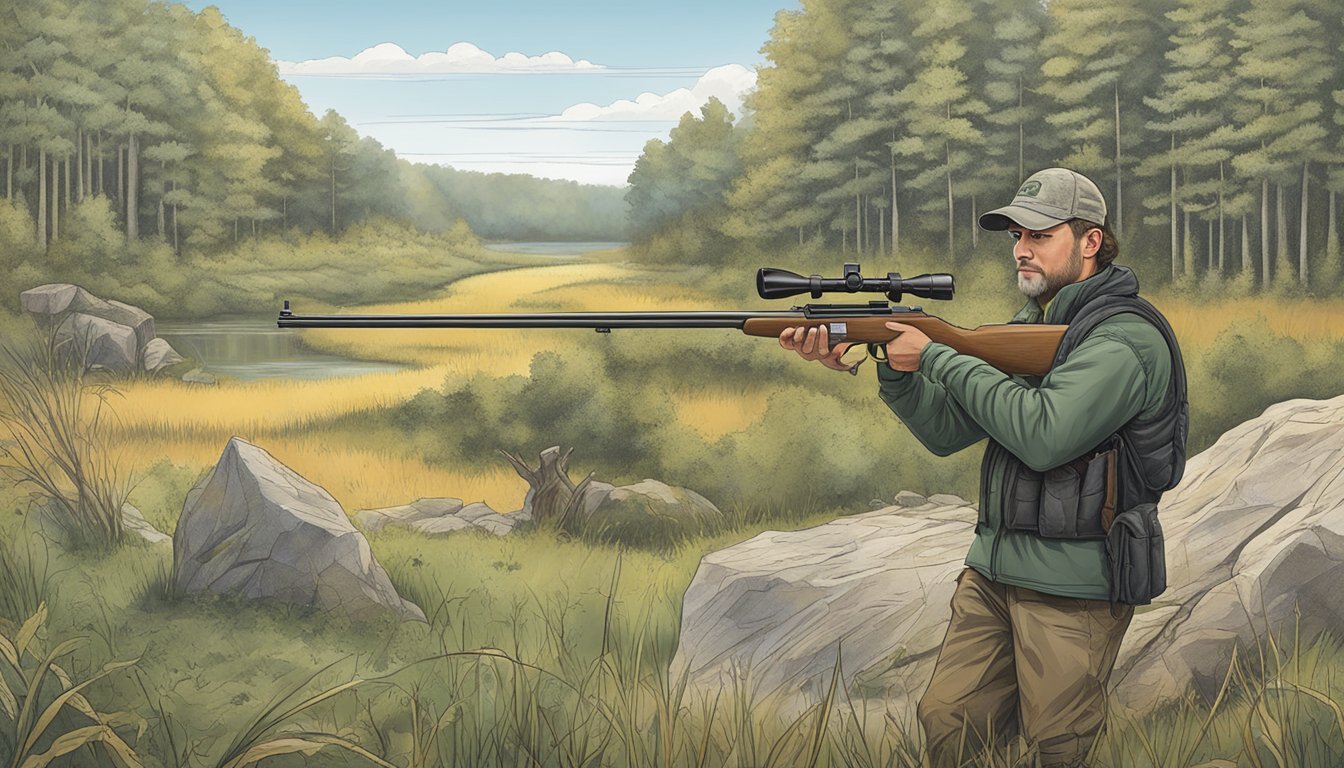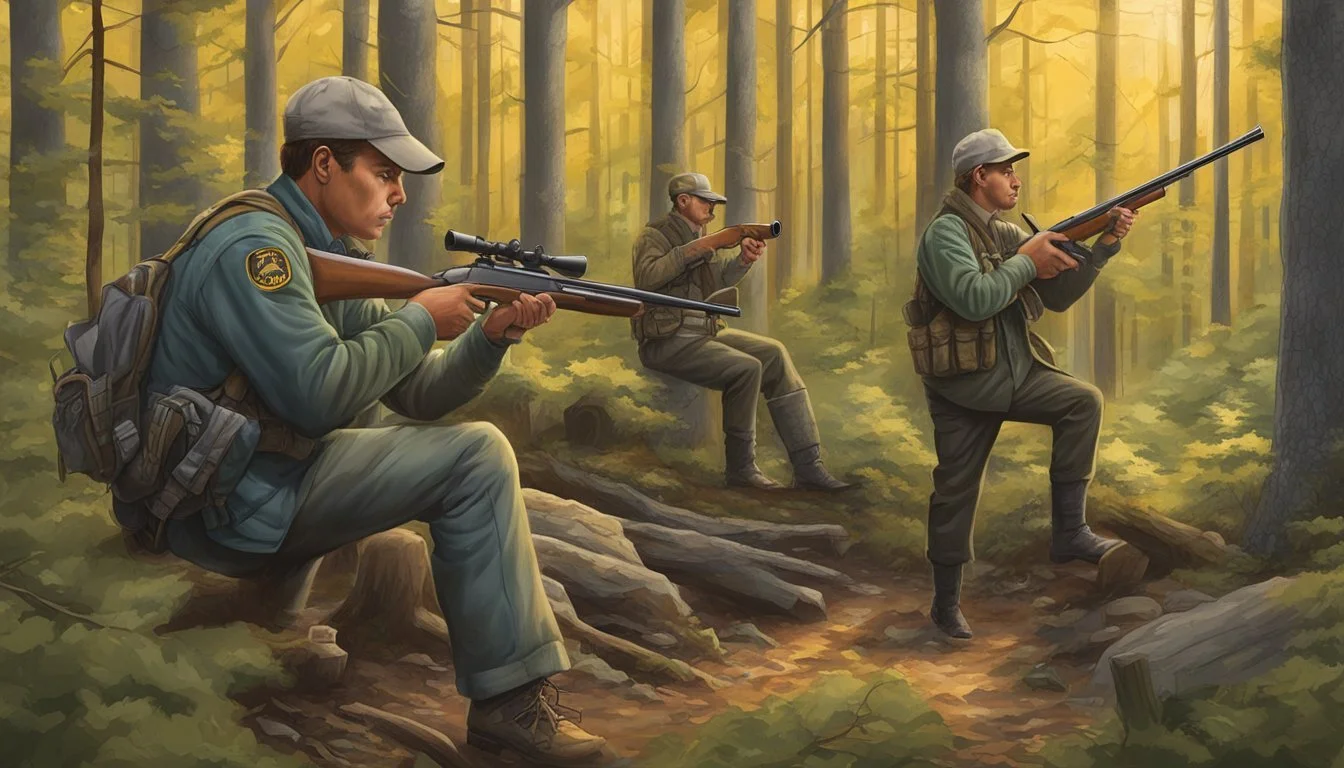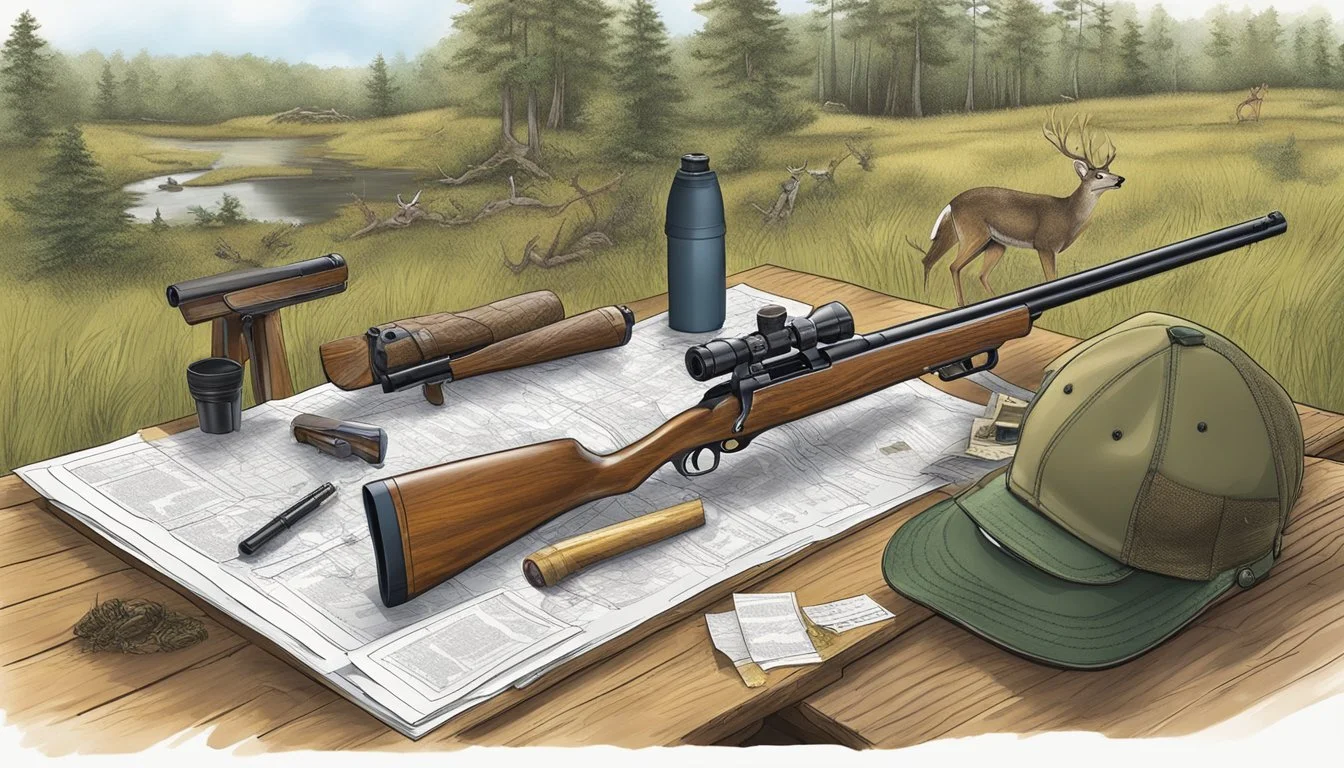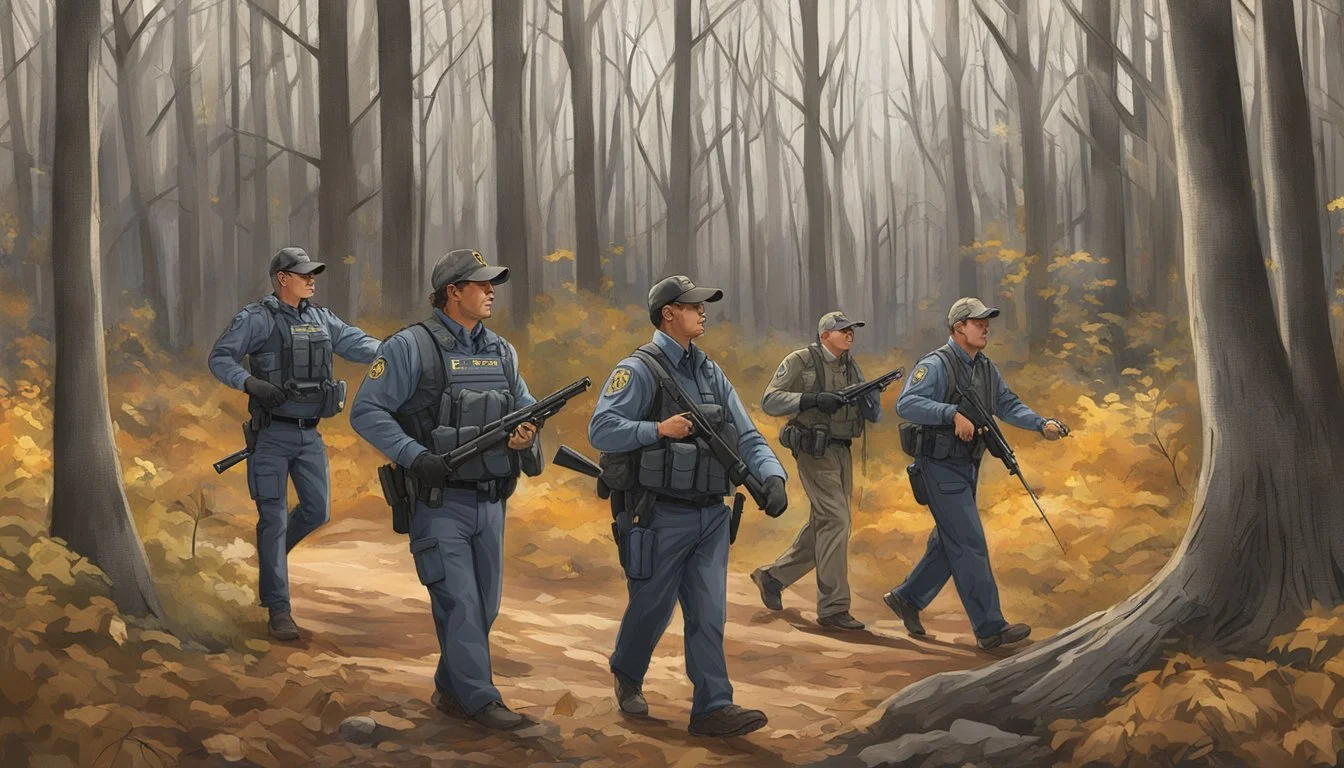Gun Laws in Delaware for Hunters
Understanding Regulations and Compliance
Understanding the gun laws in Delaware is essential for hunters aiming to comply with state regulations and enjoy their hunting season legally and safely. Delaware has specific statutes that address the use of firearms by hunters, outlining when and how they can be used, as well as the necessary permits and courses required prior to hunting. Hunters in Delaware are expected to complete a hunter education course to ensure they are familiar with safe hunting practices and state laws.
The state imposes certain restrictions on hunting with firearms; for instance, hunting within 100 yards of an occupied building is prohibited unless explicit permission is granted by the owner or resident. For bow and arrow deer hunting, the distance requirement is reduced to 50 yards. This regulation is in place to ensure the safety of non-hunting residents and to minimize any potential conflicts.
Moreover, recent developments in the legal system have expanded the types of firearms that can be used for hunting. A ruling by the Delaware Superior Court now allows deer hunters to use semi-automatic rifles. This change reflects an evolving understanding of gun use in hunting, demonstrating Delaware's responsiveness to the rights of gun owners while balancing public safety concerns. It's important for hunters to stay abreast of such changes to avoid any legal infractions while participating in hunting activities.
Gun Law Overview in Delaware
Delaware's gun laws encompass a history of evolving legislation, current regulations tailored by the General Assembly, significant Supreme Court Rulings, and the active participation of gun rights groups. These laws are carefully balanced with the rights afforded by the Delaware Constitution.
History of Gun Legislation
In its early history, Delaware's legislation followed the federal baseline regarding gun ownership and usage, with traditional allowances for hunting and self-defense. The General Assembly has periodically updated these laws to reflect changing societal norms and public safety concerns.
Current State Law and Statute
Delaware mandates background checks for private firearm sales, with certain exemptions such as for antique and replica guns. The state also prohibits the possession of firearms within specified distances from schools and certain public areas. Here's a snapshot of key statutes:
Background Checks: Required for most firearm transfers.
Possession Limits: Certain individuals, like convicted felons, are barred from ownership.
Area Restrictions: Firearms are restricted in certain sensitive areas.
Delaware Supreme Court Rulings
The Delaware Supreme Court has upheld various gun control measures affirming them as constitutional. The Court has been pivotal in interpreting the Delaware Constitution in a way that balances individual rights with public safety imperatives.
Influence of Gun Rights Groups
Gun rights groups in Delaware, such as the NRA-ILA, play an influential role in legislative processes, advocating for what they consider the responsible exercise of the Second Amendment rights. They engage in educational initiatives and challenge laws they perceive as unconstitutional.
Hunting Regulations and Requirements
Delaware's hunting regulations are comprehensive, designed to ensure the safety of hunters and the sustainability of wildlife populations. Compliance with state guidelines for licensing, permits, background checks, season dates, bag limits, and hunting methods is mandatory for all hunters.
Licensing and Permits
Hunters in Delaware must obtain the necessary licenses and permits before engaging in hunting activities. Licensing is a pivotal step in ensuring that hunters are knowledgeable about the state's hunting laws. For instance, new hunters must complete an approved hunter education course to qualify for a hunting license. After completing the online portion, hunters should email or call the Hunter Education office to update their account with the course completion details.
Background Checks and Private Sales
Background checks are a legal requirement in Delaware for individuals purchasing firearms. This regulation aims to prevent individuals who are prohibited from owning firearms, such as convicted felons, from obtaining them. Private sales of firearms in the state are also subject to background checks to uphold this safety measure.
Bag Limits and Seasons
The state of Delaware establishes specific bag limits and hunting seasons for various game to manage wildlife populations effectively. Regulations include season dates for deer and turkey hunting, among others, to coincide with periods that minimize impacts on animal populations and enhance hunter success. Bag limits are strictly enforced and hunters are required to record and report their harvest as per state guidelines.
Prohibited Methods of Take
There are specific methods of take that are prohibited in Delaware to promote ethical hunting practices and safety. For example, it's illegal to hunt within 100 yards of an occupied building, except for bow hunting deer where the distance is reduced to 50 yards. Firearms must be unloaded while being transported, and the use of certain traps, baiting, or electronic calling devices may be restricted or forbidden.
Firearm Types and Use in Hunting
Delaware hunting regulations define permissible firearms for use in hunting, emphasizing safety and species-specific guidelines. Hunters should acquaint themselves with the types of firearms allowed and relevant restrictions for different hunting seasons and game.
Shotguns and Rifles
Shotguns are a common choice for bird and waterfowl hunting in Delaware. Hunters must use non-toxic shot up to size T and are not permitted to use a shotgun capable of holding more than three shells, unless during the snow goose Conservation Order. When hunting deer, the use of a shot larger than No. 2 is allowed. Rifles are also employed in hunting; however, the state mandates specific distances for firearm deer hunters to maintain from structures for safety.
For bird and waterfowl:
Non-toxic shot up to size T allowed
Shotguns with a maximum capacity of three shells
For deer hunting:
Use of a shot larger than No. 2 permitted
Handguns and Concealed Carry
Handguns in Delaware may be used for hunting, but concealed carry during hunting requires adherence to Delaware's concealed carry laws, which include obtaining a proper permit. Handgun hunters must be aware of the regulations regarding the season and the species they intend to hunt.
Regulations to note:
Concealed carry permit required for hunting with a handgun
Archery Equipment and Crossbows
When it comes to archery equipment and crossbows, Delaware permits their use in hunting several game species. Specific regulations dictate minimum distances from structures when using archery equipment. There are different safety and use regulations for crossbows, and hunters should review these rules before setting out.
Archery hunting:
Maintain a minimum distance of 200 yards from structures in New Castle County, north of I-295 and I-95
A minimum distance of 50 yards is required in other regions
It's important for hunters in Delaware to confirm they abide by all current federal and state regulations regarding their chosen hunting firearms or archery equipment for a safe and legal hunting experience.
Safety and Ethical Practices
In Delaware, hunters are expected to prioritize safety, adhere to ethical standards, and respect wildlife conservation efforts. Strict adherence to state regulations ensures these priorities are maintained for the benefit of all.
Safe Firearm Handling and Transport
Hunters in Delaware must demonstrate safe firearm handling and transport. They are required to:
Keep firearms unloaded when not in use.
Use safety features such as gun locks.
Store firearms and ammunition separately to prevent unauthorized access.
Transporting firearms also demands caution. Firearms must be unloaded and cased during transit to and from hunting areas.
Ethical Hunting and Wildlife Conservation
Ethical hunting practices are foundational to Delaware's approach to wildlife management. Hunters are encouraged to:
Follow bag limits to support sustainable wildlife populations.
Avoid wastage of meat by utilizing the game they harvest.
Wildlife conservation is advanced through these ethical practices, ensuring that Delaware's natural habitats sustain diverse species for future generations.
Prohibited Areas and Occupied Buildings
Hunting near occupied buildings or in prohibited areas is strictly regulated in Delaware. Hunters must maintain:
A minimum distance of 300 feet from occupied dwellings without express permission.
Awareness of public lands and private properties where hunting may not be allowed.
These guidelines help maintain safety for the public and respect for private property while hunting.
Hunting Guides and Education
Delaware mandates education for hunters to foster a community aware of safe and ethical hunting practices. The Delaware Hunter Education Program provides:
Courses that cover firearm safety, ethics, and wildlife conservation.
A requirement for hunters to pass basic hunter education before they can obtain a license.
Hunter guides are also available to new hunters, imparting knowledge about local regulations, safety, and sustainable hunting practices.
Specific Game Regulations
Delaware hunters must adhere to specific regulations tailored to various game species to ensure responsible and sustainable hunting practices. These rules are established to protect wildlife populations and to offer hunters clear guidelines for lawful hunting.
Deer and Deer Hunting Season
In Delaware, deer hunting season dates and bag limits are defined annually by the Division of Fish and Wildlife. Regulations stipulate that hunters must use an appropriate caliber for deer hunting to ensure a humane harvest. For archery hunters, there are specific distance requirements; hunters must maintain a minimum distance of 50 yards from occupied structures, unless they have explicit permission from the owner or occupant.
Waterfowl and Migratory Birds
Hunting regulations for waterfowl and migratory birds conform to federal frameworks, but Delaware provides specifics on season dates and bag limits. Hunters targeting these species are required to follow the migratory bird hunting regulations and must possess a valid Federal Duck Stamp alongside their state hunting license. The state also enforces designated hunting zones to manage the waterfowl populations effectively.
Small Game and Specialty Hunts
Small game hunting in Delaware, which includes species such as the Bobwhite quail (What wine goes well with quail?) and wild turkey, is governed by distinct seasons and regulations. For instance, the Bobwhite quail season typically has a designated timeframe and bag limits to support the species' conservation. Hunters interested in wild turkey are subject to a lottery for a limited number of permits, reflecting the careful management of this game bird to maintain healthy populations across the state.
Restrictions and Prohibitions
Delaware enforces specific regulations geared towards responsible hunting practices and the protection of public safety. These focus on the possession and use of firearms on public roads, animal welfare, discharge restrictions, and the influence of substances while handling firearms.
Possession and Use on Public Roads
In Delaware, it is mandatory for hunters to abide by rules pertaining to firearm possession and use on public roads. Specifically, all rifles and shotguns must be unloaded while being transported in or on any vehicle, farm machinery, motorboat, or sailboat when under power. The intent here is to minimize accidental discharges and increase safety for all.
Firearm Use and Animal Welfare
The law emphasizes animal welfare, with regulations in place to ensure game animals are not subject to unnecessary suffering. Hunters are held to a record of their actions regarding firearms use that could affect the welfare of animals.
Discharge Restrictions Near Dwellings
Hunters are prohibited from discharging firearms within 100 yards of an occupied building, which serves to minimize noise disturbance and safety risks. For deer hunting with bows, the limit is 50 yards. However, some jurisdictions may extend this distance up to 200 yards for those using firearms. Ensuring a clear understanding of local discharge limits is crucial.
Substance Impairment and Firearms
The use of firearms while under the influence of narcotics or any controlled substances is strictly forbidden. Hunters must ensure that they are not impaired, to protect both themselves and others; the presence of such substances can lead to increased risks of accidental injuries or fatalities.
These laws are implemented to maintain a balance between the interests of hunters, wildlife conservation, and public safety.
Additional Legal Considerations
This section details important legal requirements and restrictions regarding the carry, transport, registration, and defensive use of firearms by hunters in Delaware.
Open Carry and Concealed Carry Laws
In Delaware, open carry of firearms is generally legal for residents, though certain areas such as police stations are exempt from this allowance. Concealed carry requires a permit, which involves an application process that includes background checks and firearms training courses.
Transporting Firearms and Ammunition
Firearms should be transported unloaded and in a case when traversing public spaces. Ammunition should be kept separate from the firearm to comply with safety regulations. Special considerations may apply when transporting firearms to and from hunting locations.
Registration and Transfer of Firearms
Delaware does not require residents to register their firearms. However, private transfers of firearms must go through a licensed dealer or have a background check completed, except in cases where the transfer is between family members.
Legal Protections for Self-Defense
Delaware provides legal protections for self-defense within one's home, allowing the use of reasonable and necessary force, including deadly force, against an intruder. However, outside of the home, one has a duty to retreat if they can safely do so before resorting to force.
Advanced Hunting Techniques and Restrictions
Delaware imposes certain regulations on hunting methods and equipment to maintain safety and fairness in the pursuit of game. These restrictions are particularly pertinent when it comes to the utilization of advanced hunting techniques and technologies.
Night Hunting and Artificial Lighting
Delaware law restricts the hunting of game species to specific hours, generally between sunrise and sunset. Night hunting is typically not allowed, with exceptions such as raccoon and opossum hunting, which may be pursued at night. The use of artificial light or light amplifying devices like night vision and infrared devices is strictly regulated, often only permitted for the hunting of invasive species such as feral swine under specific conditions.
Longbow Hunting: Permitted during designated seasons.
Artificial Light: Use may be allowed for specific species under stringent conditions.
Night Vision/Infrared: Typically restricted to prevent unfair advantage and ensure public safety.
Technological Aids and Restrictions
When employing advanced technological aids, hunters in Delaware must adhere to certain restrictions. Prohibitions are in place against the use of mechanical means such as combustion or gas-operated mechanisms in bows during bowhunting seasons. Bows must be drawn, held, and released by hand, which includes longbows and crossbows. Possession of a cocked crossbow in a vehicle is unlawful, in order to prevent poaching and increase public safety.
Crossbows: May not contain devices powered by gas or combustion.
Technological Aids: Must comply with state regulations, avoiding mechanisms that give an unfair advantage.
Special Season Restrictions and Conditions
Each hunting season in Delaware comes with its own set of regulations and conditions designed to manage wildlife populations and hunter activities. For example, during the shotgun season for deer, certain advanced weapons may be prohibited. Hunters need to stay updated on changing laws, such as recent rulings that allow the use of semi-automatic rifles for hunting deer under certain circumstances, defying previous environmental authority restrictions.
Shotgun Season: Specifies types of firearms and bows that are permissible.
Hunting Methods: Seasonal restrictions can dictate allowable hunting methods, including weapon types and baiting practices.
Hunters must be vigilant in adhering to these and other detailed regulations, ensuring they engage in safe, ethical, and legal hunting practices throughout Delaware's diverse and tightly regulated hunting environment.
State Agencies and Enforcement
Delaware's gun laws for hunters are enforced by designated state agencies, ensuring adherence to regulations and providing education for public safety. Each agency plays a pivotal role in the implementation and oversight of the state's firearms laws within the hunting community.
Department of Natural Resources and Environmental Control
The Delaware Department of Natural Resources and Environmental Control (DNREC) is the primary agency overseeing hunting regulations. They ensure sustainable wildlife management and the enforcement of hunting laws. The agency provides resources and guidelines for hunters, aiming to balance ecological needs with the rights of hunters.
Law Enforcement and Penalties
Law Enforcement Officers within DNREC are authorized to enforce hunting laws. Violations can lead to penalties, including fines and loss of hunting privileges. Specific laws dictate the types of weapons used, hunting seasons, and hunting methods. For example, the possession, tending, or setting of killer traps with a jaw spread in excess of five inches is illegal and subject to Class 3 penalties.
Public Involvement and Education
DNREC and other State Agencies emphasize public involvement and education. They organize training programs and provide materials to ensure hunters understand Delaware’s regulations. The agencies aim for hunters to become informed stewards of wildlife resources, promoting safe and ethical hunting practices.









